#how to research
Explore tagged Tumblr posts
Text
Do Your Research
This phrase is regularly thrown around writeblr and for good reason. It's important to research what you are writing about to know what to include, what can be fudged, and how to depict whatever you're writing. I see "do your research" most thrown around by well-meaning and highly traditionally educated writers. It's solid advice, after all!
But how do you research?
For those writers who don't already have the research skills necessary to write something comfortably already downloaded into your brain, I put this guide together for you.
Where do I even start?
It's a daunting task, research. But the best place to start is with the most basic, stupidest question you can think of. I'm going to talk about something that I already know a lot about: fighting.
When researching fight scenes, a great way to start is to look up what different weapons are. There are tons out there! So ask the stupid questions. What is a sword? What is a gun? How heavy are they?
Google and Wikipedia can help you a lot with these basic-level questions. They aren't great sources for academic articles, but remember, this is fiction. It doesn't need to be perfect, and it doesn't need to be 100% accurate if you don't want it to be. But knowing what is true to life will help you write well. Just like knowing the rules of writing will help you break them.
You may find in your basic research sweep that you have a lot more specific questions. Write them all down. It doesn't matter if they seem obvious. Write them down because they will be useful later.
How To Use Wikipedia Correctly
Wikipedia is a testament to cooperative human knowledge. It's also easy to edit by anonymous users, which means there is a lot of room for inaccuracies and misleading information. Wikipedia is usually pretty good about flagging when a source is needed or when misleading language is obvious, but Wikipedia itself isn't always the most accurate or in-depth source.
Wikipedia is, however, an excellent collection of sources. When I'm researching a subject that I know nothing about, say Norse mythology, a good starting point is the Wikipedia page for Odin. You'll get a little background on Odin's name and Germanic roots, a little backstory on some of the stories, where they appear, and how they are told.
When you read one of the sentences, and it sparks a new question, write the question down, and then click on the superscript number. This will take you directly to the linked source for the stated fact. Click through to that source. Now you have the source where the claim was made. This source may not be a primary source, but a secondary source can still lead you to new discoveries and details that will help you.
By "source-hopping," you can find your way across the internet to different pieces of information more reliably. This information may repeat itself, but you will also find new sources and new avenues of information that can be just as useful.
You mean I don't need a library?
Use your library. Libraries in many parts of the US are free to join, and they have a wealth of information that can be easily downloaded online or accessed via hardcopy books.
You don't, however, need to read every source in the library for any given topic, and you certainly don't need to read the whole book. Academic books are different from fiction. Often their chapters are divided by topic and concept and not by chronological events like a history textbook.
For example, one of my favorite academic books about legislative policy and how policy is passed in the US, by John Kingdon, discusses multiple concepts. These concepts build off one another, but ultimately if you want to know about one specific concept, you can skip to that chapter. This is common in sociological academic books as well.
Going off of my Norse Mythology example in the last section, a book detailing the Norse deities and the stories connected to them will include chapters on each member of the major pantheon. But if I only care about Odin, I can focus on just the chapters about Odin.
Academic Articles and How To Read Them
I know you all know how to read. But learning how to read academic articles and books is a skill unto itself. It's one I didn't quite fully grasp until grad school. Learn to skim. When looking at articles published in journals that include original research, they tend to follow a set structure, and the order in which you read them is not obvious. At all.
Start with the abstract. This is a summary of the paper that will include, in about half a page to a page, the research question, hypothesis, methods/analysis, and conclusions. This abstract will help you determine if the answer to your question is even in this article. Are they asking the right question?
Next, read the research question and hypothesis. The hypothesis will include details about the theory and why the researcher thinks what they think. The literature review will go into much more depth about theories, what other people have done and said, and how that ties into the research of the present article. You don't need to read that just yet.
Skim the methods and analysis section. Look at every data table and graph included and try to find patterns yourself. You don't need to read every word of this section, especially if you don't understand a lot of the words and jargon used. Some key points to consider are: qualitative vs. quantitative data, sample size, confounding factors, and results.
(Some definitions for those of you who are unfamiliar with these terms. Qualitative data is data that cannot be quantified into a number. These are usually stories and anecdotes. Quantitative data is data that can be transferred into a numerical representation. You can't graph qualitative data (directly), but you can graph quantitative data. Sample size is the number of people or things counted (n when used in academic articles). Your sample size can indicate how generalizable your conclusions are. So pay attention. Did the author interview 300 subjects? Or 30? There will be a difference. A confounding factor is a factor that may affect the working theory. An example of a theory would be "increasing LGBTQ resources in a neighborhood would decrease LGBTQ hate crimes in that area." A confounding factor would be "increased reporting of hate crimes in the area." The theory, including the confounding factor, would look like "increasing LGBTQ resources in a neighborhood would increase the reporting of hate crimes in the area, which increases the number of hate crimes measured in that area." The confounding factor changes the outcome because it is a factor not considered in the original theory. When looking at research, see if you can think of anything that may change the theory based on how that factor interacts with the broader concept. Finally, the results are different from the conclusions. The results tell you what the methods spit out. Analysis tells you what the results say, and conclusions tell you what generalizations can be made based on the analysis.)
Next, read the conclusion section. This section will tell you what general conclusions can be made from the information found in the paper. This will tell you what the author found in their research.
Finally, once you've done all that, go back to the literature review section. You don't have to read it necessarily, but reading it will give you an idea of what is in each sourced paper. Take note of the authors and papers sourced in the literature review and repeat the process on those papers. You will get a wide variety of expert opinions on whatever concept or niche you're researching.
Starting to notice a pattern?
My research methods may not necessarily work for everybody, but they are pretty standard practice. You may notice that throughout this guide, I've told you to "source-hop" or follow the sources cited in whatever source you find first. This is incredibly important. You need to know who people are citing when they make claims.
This guide focused on secondary sources for most of the guide. Primary sources are slightly different. Primary sources require understanding the person who created the source, who they were, and their motivations. You also may need to do a little digging into what certain words or phrases meant at the time it was written based on what you are researching. The Prose Edda, for example, is a telling of the Norse mythology stories written by an Icelandic historian in the 13th century. If you do not speak the language spoken in Iceland in 1232, you probably won't be able to read anything close to the original document. In fact, the document was lost for about 300 years. Now there are translations, and those translations are as close to the primary source you can get on Norse Mythology. But even then, you are reading through several veils of translation. Take these things into account when analyzing primary documents.
Research Takes Practice
You won't get everything you need to know immediately. And researching subjects you have no background knowledge of can be daunting, confusing, and frustrating. It takes practice. I learned how to research through higher formal education. But you don't need a degree to write, so why should you need a degree to collect information? I genuinely hope this guide helps others peel away some of the confusion and frustration so they can collect knowledge as voraciously as I do.
– Indy
#writing advice#writing tips#writing resources#writeblr#amwriting#writblr#writers of tumblr#writers on tumblr#writing help#writing guide#how to research#reading research articles#do some research#do your own research#do your research#research for writers#writing research#writing tip#writing reference#writer tips
2K notes
·
View notes
Text
In light of how much harder popular search engines have made it to do research, I've been deleting outdated "how to use google" and "google is your friend" posts from my blog 😥
95 notes
·
View notes
Text
Anyone have any tips on how to research on anything to stay more up to date? For example idk what I want to find but I like researching new materials that can be used in construction since I’m in the field but I never know where to look or how to research about it? I just type a bunch of words in Google but how do I find what I’m looking for when idk what I’m looking for? Any tips ?
#research#architecture#architects#design#geeks on Tumblr please help me#how to research#books#reading#construction#architecture materials#researching a topic
1 note
·
View note
Text
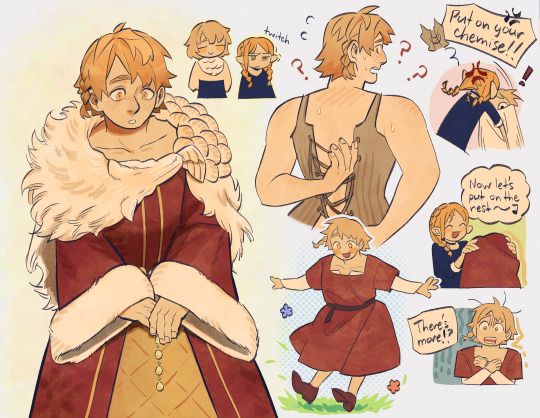
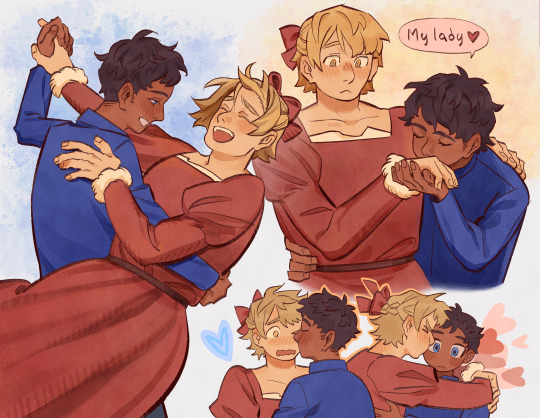
a gentleman and his lady 💗
#transhet labru save me#do you know how much fashion research i had to do. an entire day#dungeon meshi#dunmeshi#laios touden#kabru of utaya#labru#transfem laios#chip art
17K notes
·
View notes
Text
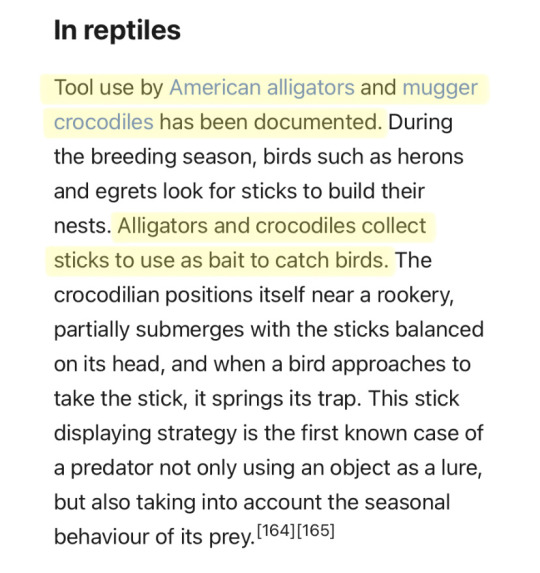
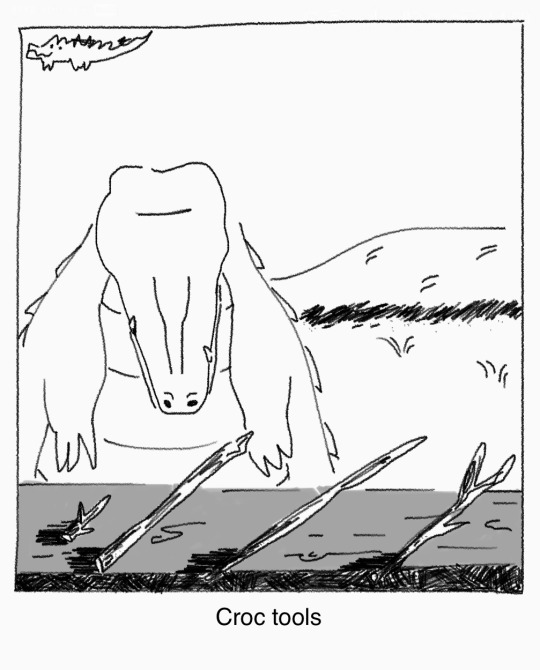
no fucking way
#sketches#comics#the far side#crocodiles#my art#i don’t know how to tag this.#also i should probably say. i tried to look into it further and i haven't seen hard hard evidence that they do this on purpose#personifying animals is tempting but ultimately i think it's just hot speculation atm. crocodilians are famously tough to research too#like the advantages may be a coincidence or just pure curiosity/play. which is also really cute...love those guys#sorry for the misinformation! light theory only afaik#comic
66K notes
·
View notes
Text
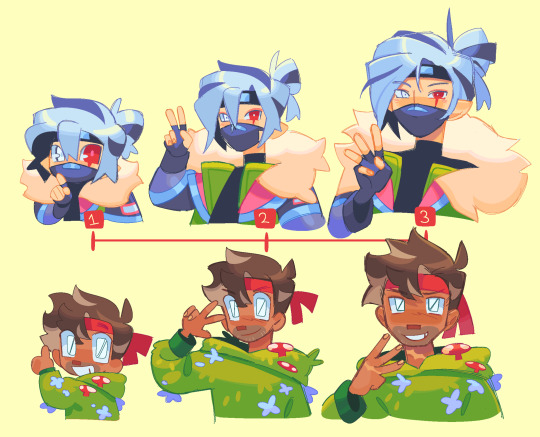
style testing
#stufffsart#Etho#ethoslab#bdoubleo100#bdoubleo#Bdubs#ethubs#mcytblr#not much changes in hindsight- but a matter of how what can be done- what can’t and how#for my own research u can say
4K notes
·
View notes
Text
Imagine Sukuna letting you wash his hair. He's never allowed it before but he heard some ladies in high society talk about how their maids washed their bodies for them from time to time and as a man that likes to try everything - he summoned you to the bathing chamber just so that you could do it.
You, the head servant, had simply assumed that Sukuna intended for you to bring him something. Perhaps the oils in the water were not to his liking, or perhaps he forgot a towel. But no, he orders you to wash his hair for him.
He doesn't think he would enjoy it. He stops you a few times during it too, his hand gripping your wrist before he relents. And when you finally lather the products in his hair? He cannot stop the content rumble from leaving his throat. He relaxes against the edge of the water as his back presses more firmly against your knees that stick out over the edge. You're delicate and that surprises him. He's not used to that, even from his concubines.
You comb his hair too, rinsing it with rice water and making sure each knot is brushed out. He likes it. He will never admit that he likes it, but he does. And you know he does when he summons you once per week to do it again and again. And of course, no one else gets the privilege.
#sukuna#ryomen sukuna#sukuna x reader#jujutsu kaisen#heian sukuna#apparently bathing wasn't that common so the whole 'bathing chamber' doesn't work#but I don't care I'll do my research later#it's the same how brothels weren't common during the heian era but no one will stop me from writing it#toonce writes#toonce thoughts
7K notes
·
View notes
Text
Love when writers do an insane amount of unnecessary research for their fics. I follow an author that did like 8 months of intense research into 14th century Scotland so they could write smut about it, and guess what. It was some fucking incredible porn AND I learned about old Scottish politics
#personal tag#and I’ll stand by them!!!!#author of this fic I summon thee to this post#I love your intense research and I don’t give a FUCK how long it’ll take to post a chapter#take your time I’ll be here :):)
49K notes
·
View notes
Text
"aphobia doesn't exist"
bitch literally not that long ago an aroace youtuber animator was insulted by almost half of its community for being it
#i did some research about it and found out that the problem was principally that she had previous experience in the romantic area#so people just didn't take her seriously and said she was lying#even though she stated multiple times that she wasn't comfortable in those situations#now things are more calmed but damn#mind your own bussiness#i believe she knows more about herself than you#sorry if i offended you with this comment but i hate how aro/ace/aroace people are always left behind#insulted and rejected because they “dont know what they are talking about”#or because they “just have to wait for the right person”#or because they are “psychopaths and they are missing something”#i love that animator and she helped me realise a lot about myself#and now that i know the context i think i will start making a list and killing aphobes one by one#aromantic#arospec#asexual#aroace#acespec
9K notes
·
View notes
Text


My piece for the @coloringwithhermits zine!! You can download the lineart from the Coloring With Hermits zine page and print it out or color it digitally! and if you do please post it and tag me I’d love to see it :D
#goodtimeswithscar#hermitcraft#my art#yayyy extremely excited about this piece :]]]#you have no idea how much time i spent researching trains for this#1k
1K notes
·
View notes
Text


#surprise couple!#mf ship bracket#mf ship bracket 2023#bonus round#kylo ren#rey#reylo#anti-reylo#star wars#unsure how to tag these i've been relying wholly on amanda's research and fandom experience.#ummmmm#king charles#royal family#camilla parker bowles#parasites in chief in their idiot hats#full credit to amanda messaging me at 4am like “i think reylo could beat king charles and camilla. food for thought”#hope u guys enjoy <3#like i said. this is my little thought experiment#anti reylo tag here like . do we need anti monarchy too. sorry this one is hateful
18K notes
·
View notes
Text
「The Pale Bat」
❗️Minor BG3 Spoiler Ahead❗️
Summary: Astarion encounters a small creature, and makes a decision.
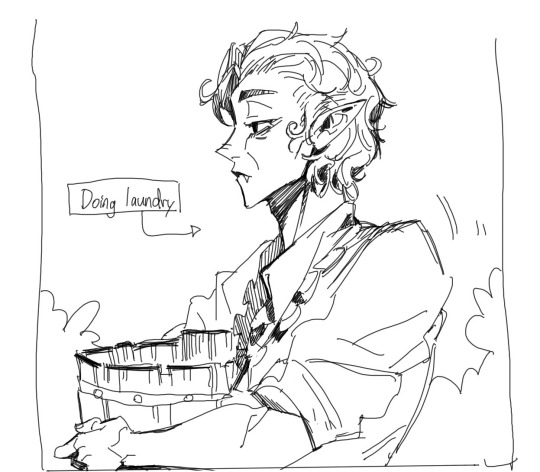
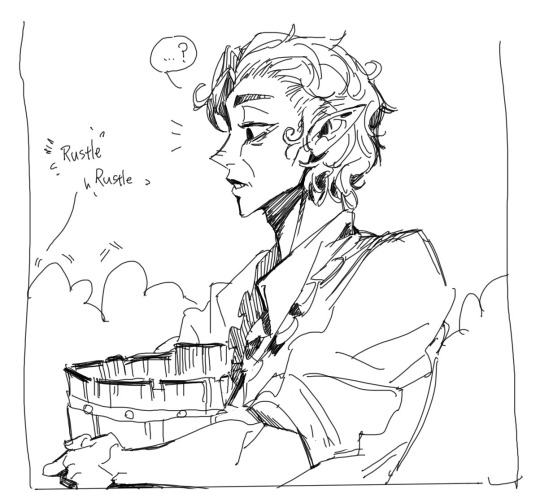
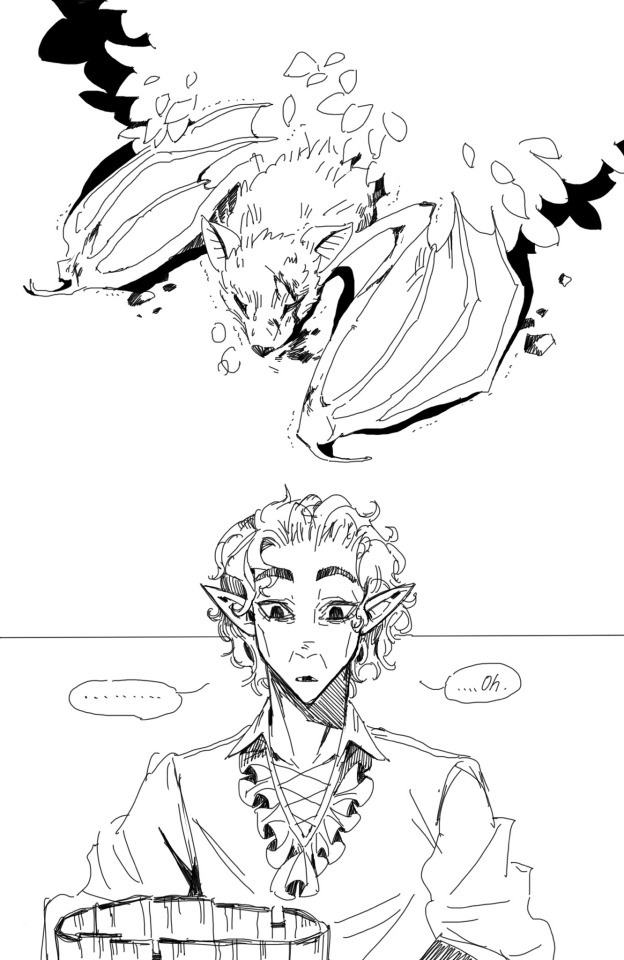
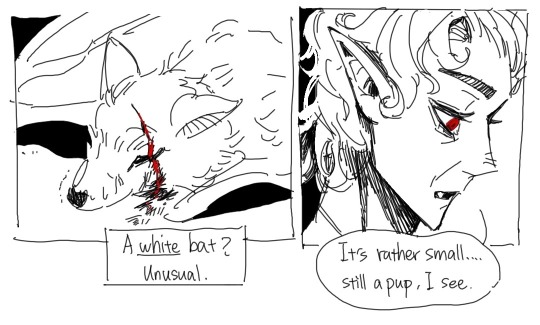
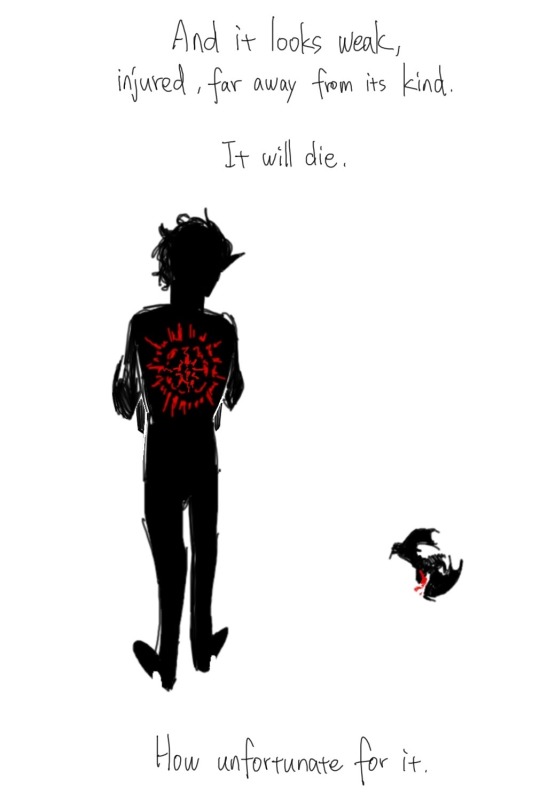

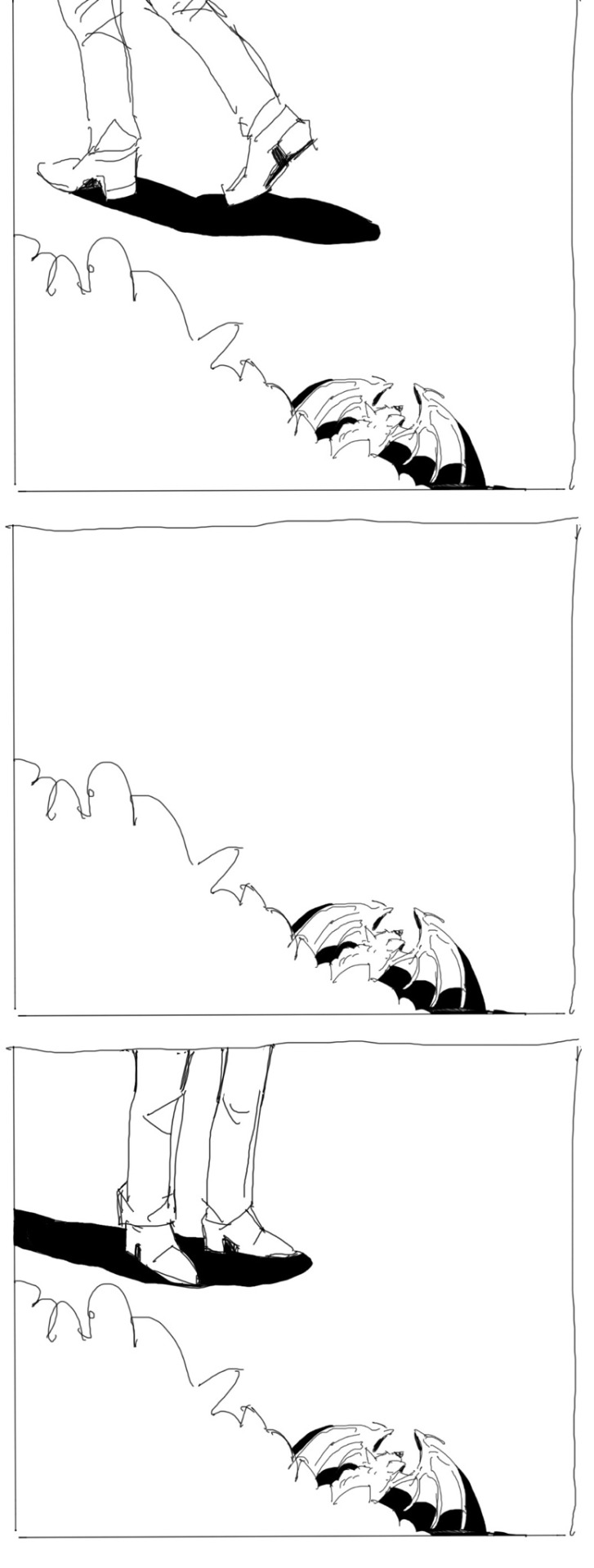



Part 2
(Edited because I forgot a panel, oops, & also added some refinement)
Astarion finds a bat and saves it, because I said so.
I did it, I did the thing!! I drew the wonderful and wholesome idea that originated from this post made by @miraculan-draws :
I loved this post so much, I had to make it real, and I hope people might find this entertaining as well. There is no way Astarion would not see himself in a little white bat who desperately needed help. This is set after traveling with my Tav for a while, and Astarion has softened his edges enough to be a bit more gentle.
Thank you for posting this lovely concept, I might continue to draw more of this :)
#bg3#baldur's gate 3#astarion#balders gate 3#bg3 fanart#bg3 astarion#my art#halsin#bg3 halsin#astarion ancunin#was struggling a bit on the little bat#I don’t know how bats look so I did my research#also trying to give halsin as much muscle as possible#bc of course? of course???#why would I not give Halsin all the muscles that ever existed#anyway I’m gonna go#bg3 the pale bat#the pale bat
8K notes
·
View notes
Text
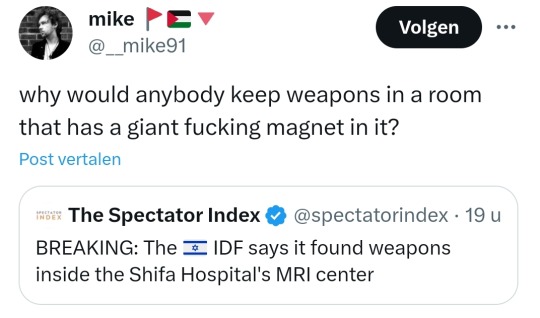
The IDF is counting on people to not have any critical thinking skills at this point
#like what a joke#they cant even do basic research#it doesnt take much to figure out how an mri works#cant make this shit up#current events#idf#israel#jerusalem#gaza#palestine#from the river to the sea palestine will be free#news#trending#twitter#viral#text post
6K notes
·
View notes
Text

princess tutu posting <3
#princess tutu#ahiru#rue#magical girl#princess tutu fanart#shojo#princess kraehe#illustration#my art#I was looking at the ballet moves in swan lake for this because I think it’s neat how they portray different characters and creatures!#I went with a swan pose for duck and rue’s I based off odile since some of her movements are more claw-like just like a raven!#I love doing research for stuff like this :)
2K notes
·
View notes
Text

The visual of Emmy being absolutely devastated and heartbroken during the period Rook went missing kept coming up. 😔
#dragon age#dragon age the veilguard#DAtV#emmrich volkarin#veilguard spoilers#spoilers#my art#just kept thinking about how much angst it’d be#esp rook going missing after that fight#and Emmy not getting the chance to apologise#and then thinking rook might be gone forever#just goes days without sleeping to research how to get rook back#and he’s not taking care of himself#doesn’t bother shaving or wearing all his jewellery#manfred gets concerned and asks the others for help too#and they check on him#cue days of the others helping him too#I love their dynamics sm and they’d absolutely take care of him while he’s struggling too#oughhh the potentials#sorry I just like hurt comfort tropes a lot ahaha#wonderful wonderful angst#if only
932 notes
·
View notes
Note
I hope you take this as the compliment it is intended to be, but you strike the same chord of irreverence-as-love, jokes-to-showcase-sencerity that I get from Chuck Tingle, and I adore both of you.

You have bestowed the greatest honour upon me.
#poorly drawn mdzs#mdzs#lan wangij#wei wuxian#digital art#ask#Thank you very much; I do take it as the compliment you intended it to be B*)#Mr. Tingle is a legend in both grindset and vibes. To be even 0.1% striking a similar chord is an aspiration of mine.#I also want to honour the effort I put into this parody book cover. Which was a *lot* more than one would think.#Covers were analyzed. I did research and took notes. I learned how to download fonts. 4 different programs were used.#This file is also poster sized (A4 dimensions)! I thought It would make the joke funnier for some reason.#Chuck Tingle's style is very iconic and fun to replicate. Despite the time intensive labour - I had a blast making this!#I admit to skimming most of the chapter this is based off of just to fact check a few details but boy did I learn things.#Wei Wuxian canonically has CAKE. Tiny waist and a fat ass.#I took several more notes but I will warn you now that I can't *not* find smut writing to be very funny.#This was pure chaos. Unbridled chaos. WWX really did shove a sword up his ass to bully dream-LWJ.#The need to be a little shit trumps saftey I guess.#There is a 99.9% chance I will not cover the extras so this is likely all the fans of those chapters will get from PD-MDZS.
3K notes
·
View notes